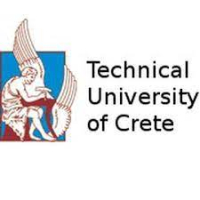ABOUT US




In RESCHEDULE, we hypothesize that improvements in farms adaptation to climate change extremes in the Mediterranean at scales able to cause impact require the adoption of integrated and easily adjustable approaches that consider all the types of resilience. To meet this goal, RESCHEDULE assembles a multidisciplinary consortium and a wide spectrum of stakeholders; encouraging their active participation and interaction throughout the project lifetime to maximize the innovation potential and outcomes applicability. RESCHEDULE adopts a hierarchical strategy that considers incremental, and transformative adaptations, targeting mainly the improvement of soil health and associated microbiota to strengthen farm resilience and efficient use of resources. State-of-the-art approaches, based on agroecology principles are theoretically evaluated before their extensive evaluation in three experimental sites (GR, IT, TUN) characterized by contrasting conditions (crops, social, economic, climate). To advance our insights on climate change effects, new experiments are planned at the Global Change Experimental Facility (DE) on non-tillage, crop genetic diversity and intercropping at ambient and anticipated climate. Modelling tools are then employed to extend studies outcomes in the long-term, under different climate change scenarios. Transition pathways are then evaluated to propagate the spread of adaptation strategies at larger scales. Toward this goal, RESCHEDULE outcomes will identify and engage relevant stakeholders to ensure that the pathways proposed for a transformative change of agriculture under changing conditions result from a co-construction. Cost benefit analysis will be performed, considering all costs to provide estimates of environmental benefits. The RESCHEDULE outcomes will be effectively communicated to local, governmental and EU agencies in the form of a solid roadmap, describing actions and conditions, gaps and limitations, and need for incentives and initiatives. This roadmap can be considered by policy makers and stakeholders at different governance levels to make the decisions to increase the resilience of agricultural sector to climatic change.














